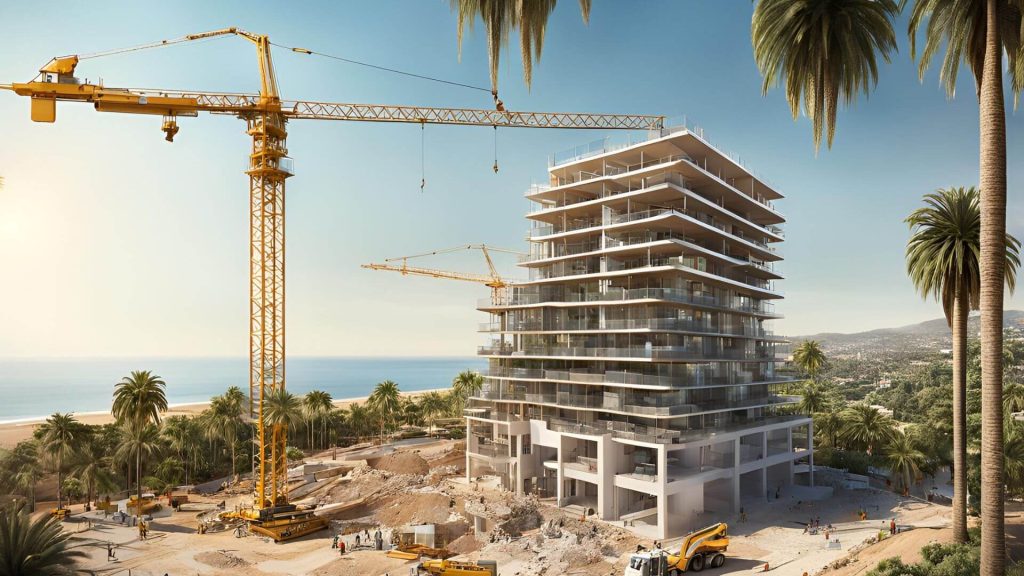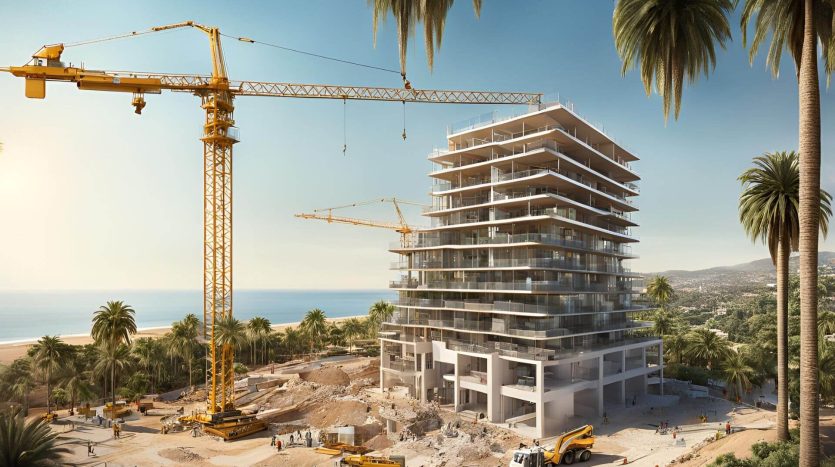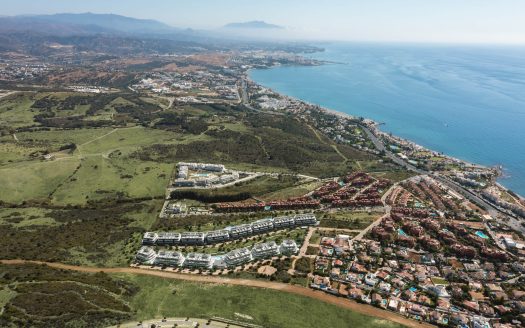Building guarantees for new construction in Spain
Although new construction in Spain is a dream for many people, it can cause a lot of stress and sleepless nights if you are not aware of what guarantees you have as a client (and how you are protected). In this blog text we explain the different construction guarantees you can rely on and which will give you the necessary peace of mind during the purchase and construction process of your new home in Spain.

What construction guarantees are there?
Construction defects: 1 year
For construction defects, both the developer and the builder are held jointly and severally liable for a period of one year. These defects are immediately visible to the naked eye and are what you would normally notice when listing problems at the time of completion (also known as snagging).
In Spain, the snagging is done on completion (that is, after the deed, when the property has already been transferred). It is advisable to hire a technical architect to do this, who will go through the whole property in detail and draw up a report (which is separate from the file used by the developer and sometimes allows the developer to act more quickly). To appoint a technical architect, you should expect to pay several hundred euros, depending on the size of the home. So after finding/solving one mistake, you often get your money out of it. A good real estate agent has an extensive network and puts you in touch with reliable technical architects.
Examples of construction defects: non-conforming floor tiles, cracked paint, faulty/faulty door knobs, leaking faucets and in general anything related to poor workmanship or the wrong materials, beauty defects, etc.
Devices: 2 years
Homes equipped with household appliances such as: washing machine, dishwasher, dryer, oven, water filter, … offer at least a two-year warranty on all these appliances (according to European legislation around consumer law).
Sometimes manufacturers offer warranties longer than two years on certain products, but two years is the legal minimum. It is not the developer/building company that makes these guarantees, but rather the brand/distributor of the home appliances.
Residential risks: 3 years
This warranty covers defects that affect living itself. These problems pose a threat to the health, hygiene of residents and sometimes even to the environment. The warranty period for this is three years.
Examples of housing hazards: moisture spots/mildew, leaking gas lines, etc.
Structural problems: 10 years
The broadest construction warranty is the 10-year warranty, also called “Seguro Decenal,” covers serious structural problems that compromise the stability of the building. An independent insurance company oversees that construction is done to all standards, thus minimizing the possibility of structural problems.
Examples of structural problems are: Shifts and large cracks in the structure, unstable roofs, etc..
From when do these construction guarantees apply?
The above mentioned construction guarantees do not take effect from the moment of signing the deed at the notary (“Acta de Entrega“, the moment you receive the keys), but rather from the moment the developer receives the “Acta de Recepción” from the construction company (i.e. before completion). So keep this in mind when you want to claim construction guarantees.
How common are defects/flaws in new construction in Spain?
Structural problems (10-year warranty) that could make your new construction uninhabitable are fortunately very rare (thanks in part to the insurance company following up on the construction).
Appliance defects (2-year warranty) depend entirely on the brands the developer works with. Siemens, Balay (Spanish brand similar to Bosch and Siemens) and Miele are common brands.
Residential risks (3-year warranty) are also often avoided because new construction projects must apply for the License of First Occupation (LFO) from the municipality/city. These will verify that the project is built according to the building license and that there are no health risks.
Construction defects (1-year warranty) are no more common in Spain than in Belgium or the Netherlands. Moreover, a good developer will do what is necessary to fix the problems in time. So ask your real estate agent for experiences of clients who bought in already completed projects of the developer of the project you are interested in.
There are still defects within the construction warranty period, now what?
Writing to the developer
It is highly recommended to seek an amicable settlement first, but make sure that all communications and agreements made are in writing.
The initial step involves informing the developer in writing – for example, via e-mail – of the identified defects. Include visual evidence such as photos and video footage so that the situation is clearly presented. Explicitly ask for a remedy and set a reasonable deadline for the developer to respond.
As long as the developer shows willingness to cooperate and makes the commitment to fix the deficiencies, you can keep repeating this process.
If you purchased your property through a good real estate agent, they can also engage in discussions with the developer. This is because they often have additional contacts at the developer and can perform the necessary extra pressure.
Developer does not respond
If the promoter does not respond adequately or at all to your request, or if it becomes clear that there is a structural defect where a simple or repeated repair will not suffice, an amicable solution will probably not provide an adequate solution.
Specifically, if no solution is proposed or if the solution offered does not match your expectations, it is advisable to proceed with a registered letter or a desk fax.
Prior to this writing, it may be useful to engage an expert (see technical architect above) to prepare a detailed report. This report will include both an analysis of the cause of the defect and recommendations for the most appropriate solutions. Your letter should also include a clear deadline for response.
If an urgent repair proves necessary to prevent further damage, you can hire a third-party contractor to bring the situation under control.
Legal Steps
If the promoter continues to refuse to respond and the construction guarantees are still valid, there is nothing left but to start legal proceedings in a Spanish court. Depending on the specific circumstances, there are various claims you can file. These include compensation for damages, reimbursement of costs for repair works carried out by a third party, or the obligation to repair or replace by the promoter himself.
At this step, however, it is essential to weigh carefully whether the legal effort is justified. This depends greatly on the size of the problem. For a relatively minor repair, it is often not cost-effective to incur the time and expense of litigation, as it does not outweigh the expected compensation or repair costs.
Conclusion construction guarantees
Some of the uncertainty involved in new construction in Spain is removed by construction guarantees. These protect the consumer against numerous defects, for different periods of time. Generally, heavier defects offer a longer warranty than minor (and more common) defects. The guarantees are legally defined and thus ensure that you can initiate litigation if the developer refuses to take the necessary measures to try to enforce the desired solution.
Source: Idealista












